D-Day at 75: Calder Valley veteran William Birch shares his amazing story of the Normandy landings
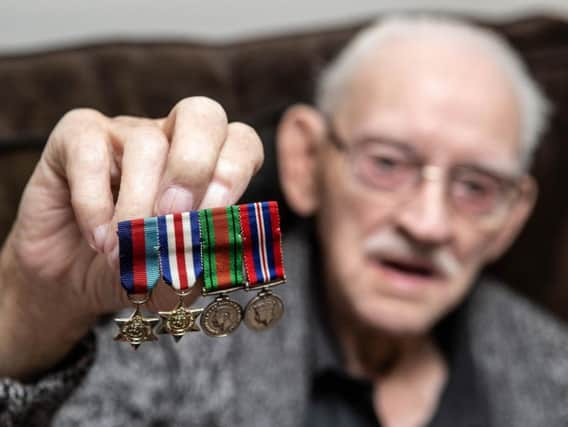

This from the man who was among the first troops to step onto the heavily mined Sword beach in Normandy 75 years ago - dodging the deadly German crossfire which killed hundreds of his fellow soldiers - and then bombed in Caen a few days later.
William's stoicism and humility is as remarkable as his gallantry.
Advertisement
Hide AdAdvertisement
Hide AdPrivate Birch was born in Lower Callis near Hebden Bridge in 1923, and received his call-up papers aged 18. He had only just turned 19 when he arrived in France as a Bren gunner with the East Yorkshire Regiment, having undergone training in North Yorkshire and on the Scottish coast.
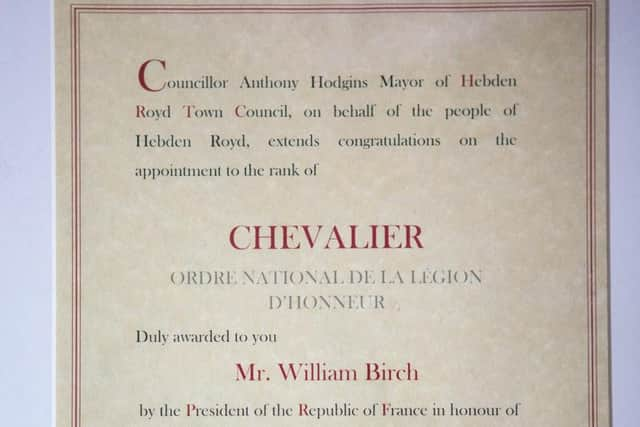

"We didn't know we were going to France until they told us the day before, when we were going onto the boat," recalls the 95-year-old.
"I was never sea sick though. I had a good breakfast and kept it down - lots of them didn't.
"I think it was days before we got anything to eat.
"One of the worst things for me was the sand. It was bloody awful, getting in your clothes everywhere."
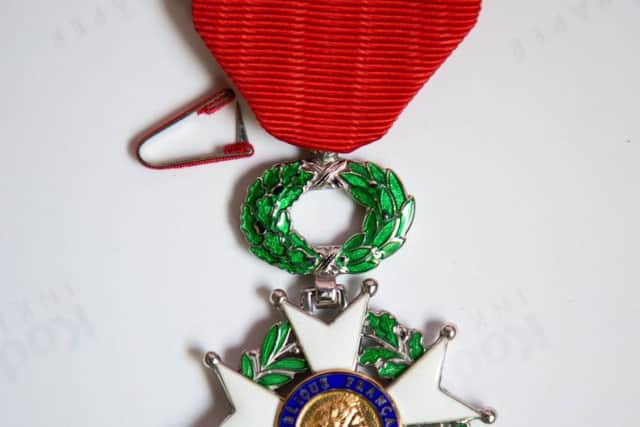

Advertisement
Hide AdAdvertisement
Hide AdWilliam's regiment had marched from Portsmouth to where their ship, HMS Glenearn, a landing ship infrantry which carried around 1,500 men, was docked.
"It had all the assault craft on top and it would roll about from side to side," he says.
"It should have been June 5 but we were told to turn back because of the weather.
"It was still rough on the sixth when we went, splashing over the boat. You could reach out and touch the water."
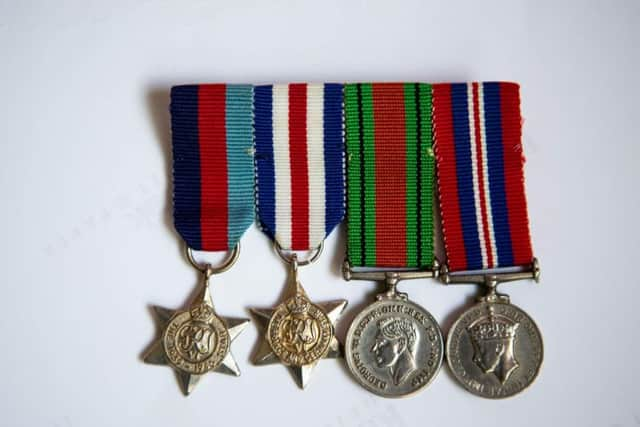

Advertisement
Hide AdAdvertisement
Hide AdAt around 7.30am on Tuesday, June 6, the moment of truth arrived.
"I can remember the front going down on the boat," William recalls. "There were three sections, but they can't all get out at once, so the middle goes, but they were in the deepest water.
"I was at the side, right on the edge of the boat, looking at all these ships firing.
"The middle went, then I think we went, and I jumped out and I was up to my neck in water.
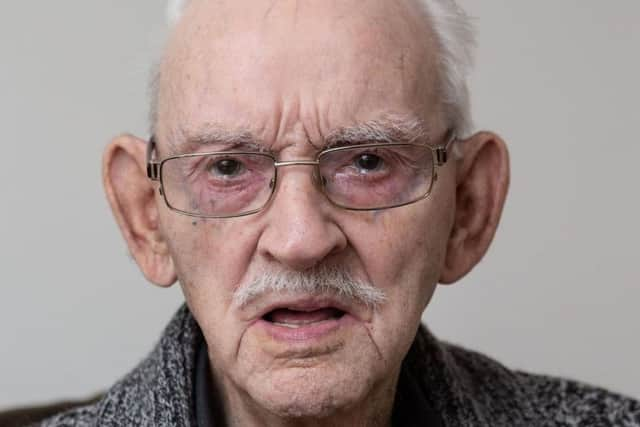

Advertisement
Hide AdAdvertisement
Hide Ad"A lad at the back of me drowned. It was too deep for him because he was only short."
William's instructions prior to disembarking consisted of being told 'you're on your own, every man for himself, when you get off into the sea, it's up to you'.
"Get off the beach, that was the first thing, otherwise, if you hang about on the beach, you'll be killed," he says.
"The Germans were cross-firing. Three inch mortar bombs, when they land, they don't go down into the sand, all the shrapnel flies off and if you get some of that in you, you've had it.
Advertisement
Hide AdAdvertisement
Hide Ad"I didn't look round, I was off. I can remember running up the beach and there were tanks.
"There were lots of soldiers wounded, and they'd get run over by tanks.
"When I jumped out I was holding the gun above my head. It was every man for himself when you got through the water.
"I had about 80 or 90 pounds on my back as well as my gun. Then all these bullets were making all this noise in the water, round the side of you. I'd never heard anything like it.
Advertisement
Hide AdAdvertisement
Hide Ad"I don't know who got killed around me, but they must have done. If you didn't get off the beach you got killed.
"The bullets would be crossing each other on the beach. If you could get off the beach then you could say 'I'm going to live another day'.
"And once you got to the beach - off! We were the first lot, the East Yorkshire Regiment.
"I didn't see any Germans straight away, but when we got off the beach there were several Germans.
Advertisement
Hide AdAdvertisement
Hide Ad"It was pretty flat, similar to Blackpool beach. I just ran, like a greyhound.
"I tried to find somewhere to hide out of the way while I got my senses.
"You were alone, waiting for everyone to group up, thinking 'where are they all, where's all my mates?'
"Some of them won't ever come because they've been killed.
"We had to all regroup and then decide what we were going to do.
Advertisement
Hide AdAdvertisement
Hide Ad"The main thing was to get up to Caen and get through there, because it opened out into France."
William estimates it took about a week to get from Normandy beach to Caen.
"We had to go and clear the Germans out of Caen, because it was in the way, but it wasn't easy," he says.
"We didn't manage it for days. We had tanks and all sorts firing at us, and I got blown up there.
Advertisement
Hide AdAdvertisement
Hide Ad"You couldn't get through it, there were too many Germans. They bombed it, blew the place to bits, so the Germans were able to hide behind all the rubble.
"They cleared them out eventually but I wasn't with them, I'd been blown out of it."
When William regained consciousness, he was in a hospital bed in Portsmouth.
He regained full fitness and was keen to go back to France, but was not sent back to the front line, and went on to be a lorry driver and work in a bus garage.
Advertisement
Hide AdAdvertisement
Hide AdIn 2017, William was awarded the Legion d'Honneur in the rank of Chevalier for his involvement in the D-Day landings - the highest military honour from the French Government.
"The British made a dummy army at Dover, they made tanks out of rubber, and made sure they did the marks on the grass," recalls William, with the same enthusiasm that saw the 19-year-old Private charge onto Sword beach. "All to deceive the Germans that they were going to land in Calais.
"So the Germans sent thousands of troops there to wait for us going across. They let the Germans listen to all these messages, if a plane came over taking pictures they'd let it through.
"But it was actually Normandy. And when it did happen, Hitler was in bed asleep.
Advertisement
Hide AdAdvertisement
Hide Ad"The commander was 10 mile up the road will all these tanks, and he wanted to get down there, but they daredn't move the tanks because they had to wait for Hitler's say so.
"And they daredn't wake him, so they had to wait while he woke up. And then he said 'no, the tanks stay there because it's not a proper invasion'.
"If they could've sent the tanks down, we wouldn't have won, because our tanks hadn't landed.
"Had the tanks come, we'd have been back in the sea."